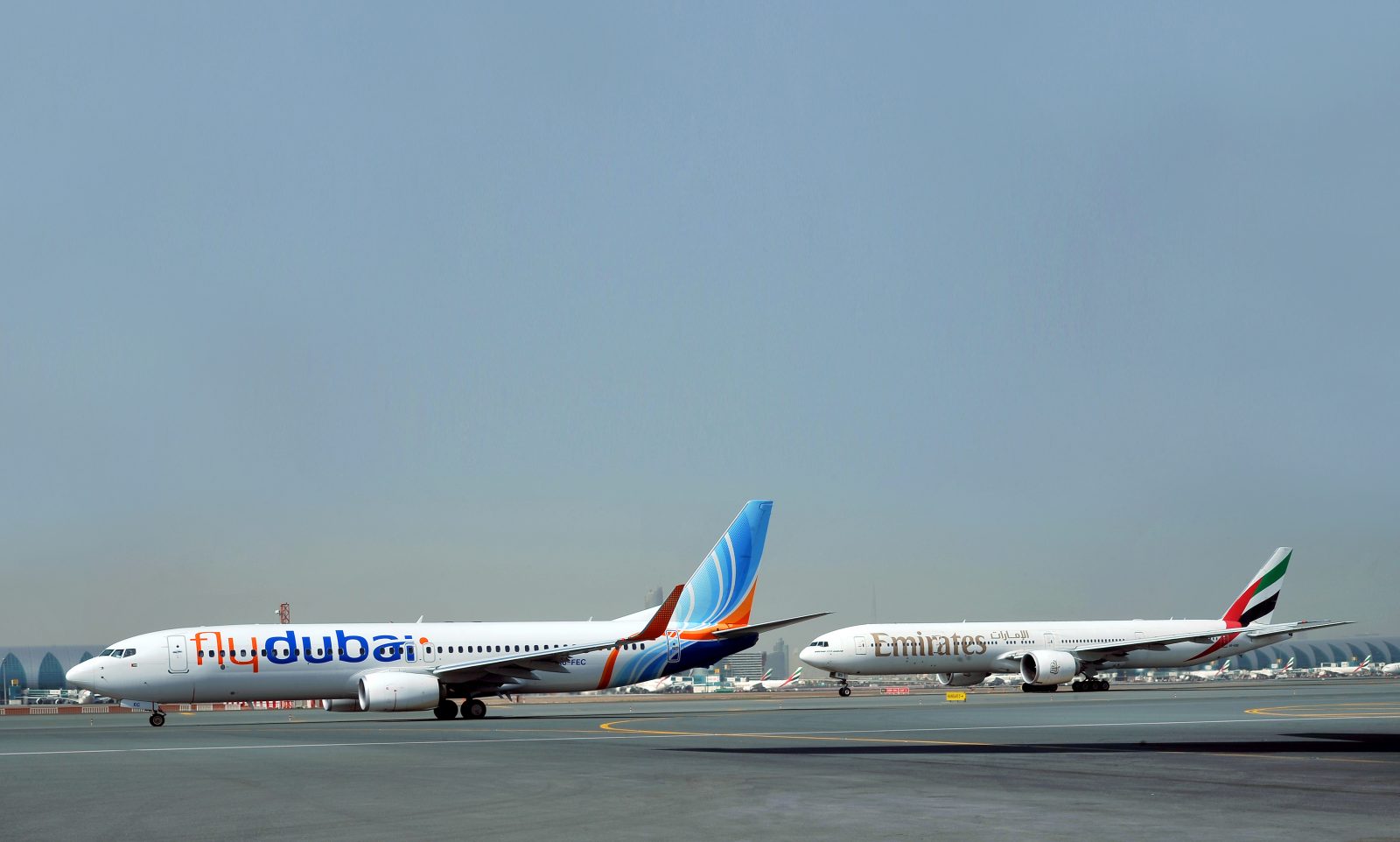
Nearly 20 years ago, the United States and the UAE signed the first landmark “Open Skies” agreement between the two countries. The deal was simple – Passenger and cargo airlines from both the U.S. and UAE would have equal access rights to each others country.
It’s a deal that the UAE’s ambassador to the United States, Al Otaiba says “works for everyone.” Explaining the benefits in more detail, Al Otaiba recently said the “aviation trade relationship is an essential part of the broader economic exchanges that connect the UAE and the US and promote our shared prosperity.”
The agreement has allowed companies from the U.S. and the UAE to establish major operations in the others market. The UAE points outs that FedEx, was able to open up its Middle East hub in Dubai, precisely because of “Open Skies”.
In the other direction, the agreement has allowed the UAE’s international airline’s, Emirates and Etihad Airways to open routes to 11 US gateway cities. More than 260 flights now serve the U.S. every week from Dubai and Abu Dhabi.
Yet its this State-side push that has riled the Big Three U.S. airlines – United, Delta and American Airlines. They’ve formed a lobby group called the Partnership for Fair and Open Skies which is calling on President Trump to rewrite the existing Open Skies agreement.
The argument is fairly simple – Emirates and Etihad (as well as Qatar Airways) are backed by their respective governments through huge subsidies. This, they argue, is “distorting the international aviation market”. These airlines are using this advantage to take over routes and put other airline’s out of business – all in a bid to build the economy of their own country.
The three U.S. airlines claim they’ve been forced to stop unprofitable routes to the Middle East and India because of the unfair competition from Emirates and Etihad – if the situation gets any worse, that will mean massive job losses for American employees.
It’s an argument that the UAE vehemently denies.
“With more than 500 aircraft purchased or on order, UAE airlines continue to inject tens of billions of dollars into the US economy, helping to support hundreds of thousands of American jobs into the next decade,” claims Ambassador Al Otaiba.

The ambassador continued: “Simply put, without Open Skies, the full scope of Boeing’s business with UAE airlines – and the economic benefits realized by communities all across the US – would not be possible.”
So how has that relationship helped Boeing over the last 20 years?
- Next year, the first Boeing 787-10 destined for Etihad Airways will enter the assembly line at Boeing’s factory in Charleston, South Carolina – Etihad’s order accounts for 20% of the total 787-10 programme and will support 7,000 jobs at the Boeing facility.
- Emirates is the world’s largest operator of the Boeing 777 with 167 of the aircraft in its fleet. And yesterday, Boeing announced that the Dubai-based airline would be the launch airline for the manufacturer’s flagship 777X aircraft. Emirates has a total of 166 more 777’s on order.
- Low-cost carrier, flydubai has been a loyal Boeing customer, operating a single aircraft fleet of 737’s. The airline recently took delivery of its first 737MAX aircraft and has 76 more on order.
The total number of Boeing orders made by the UAE airline’s stand at 545 aircraft – 321 of that number are still to be delivered and many were announced in a record-breaking aircraft order that came to a list price of $120 billion USD.

It’s not just aircraft manufacturing jobs that UAE airlines are supporting either. At least, that’s what several studies cited by the UAE’s Embassy in the United States claim. One such study by the Los Angeles Economic Development Corporation found that a single long-haul wide-body flight to LAX (like an Emirates A380) can generate up to $623.5 million in annual economic benefits.
“Open Skies is a trade agreement that is working, delivering huge value and benefits to both countries – it benefits millions of flyers, it supports hundreds of thousands of jobs, it is critical to hundreds of cities and communities,” argued Al Otaiba.
That’s an argument, the Partnership for Fair and Open Skies just isn’t buying. Jill Zuckman, the lobby group’s chief spokesperson was unequivocal in her criticism of the Gulf carriers:
“They are breaking the rules and dumping capacity into the market, putting 1.2 million jobs at grave risk. We look forward to working with the Trump administration to enforce our Open Skies agreements in order to protect U.S. jobs and ensure our airlines have a fair and equal opportunity to compete,” she said in recent comments.
“We will never be silenced in our campaign to stand up for American jobs.”
Mateusz Maszczynski honed his skills as an international flight attendant at the most prominent airline in the Middle East and has been flying ever since... most recently for a well known European airline. Matt is passionate about the aviation industry and has become an expert in passenger experience and human-centric stories. Always keeping an ear close to the ground, Matt's industry insights, analysis and news coverage is frequently relied upon by some of the biggest names in journalism.







